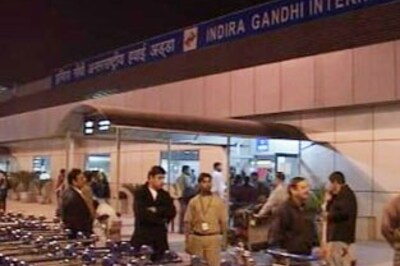
views
New Delhi: India is in the process of signing defence deals worth nearly $42 billion, including a $10.4-billion deal for 126 multi-role combat aircraft, making it one of the most attractive markets for both global and domestic arms industry, an industry study has concluded.
The joint study by industry body Confederation of Indian Industry (CII) and audit firm KPMG has also assessed that India has already signed defence deals worth nearly $25 billion in the last four years.
"Our research indicates that deals worth $24.66 billion have been signed by the Indian defence ministry with global integrators in the past 48 months and another $41.99 billion worth of deals are in the process of getting signed," the study said.
The army, the navy and the air force are evenly poised as far as future procurement is concerned. While the army and the air force will buy over $14 billion worth of platform, weapons and systems, the navy is expected to sign deals worth $13 billion. All of these acquisitions are in progress at present.
Since 2007 the air force has acquired defence products worth $17.46 billion, the navy $6.16 billion, the army $420 million and the Coast Guard $616 million, the study has assessed.
Under an assessment on the civil and military aerospace sector, India is poised to witness a growth worth $150 billion by 2030, according to Defence Production Secretary Raj Kumar Singh.
The defence ministry is also expected to spend about $100 billion in the next decade on acquisitions for its 1.3-million-strong armed forces that are currently going through a major modernisation programme.
Among the pending procurements are the 126 multi-role combat aircraft for $10.4-billion, 10 C-17 heavylift transport planes for an estimated $5.8 billion, 15 heavy-lift helicopters, 22 attack helicopters, and 197 light utility helicopters.
"It would be fair to establish that the Indian aerospace and defence industry today is an interplay of modernisation, reforms and technology, with each aspect becoming instrumental in driving the growth and stability that every stakeholder aspires to achieve," the CII-KPMG study said.















Comments
0 comment